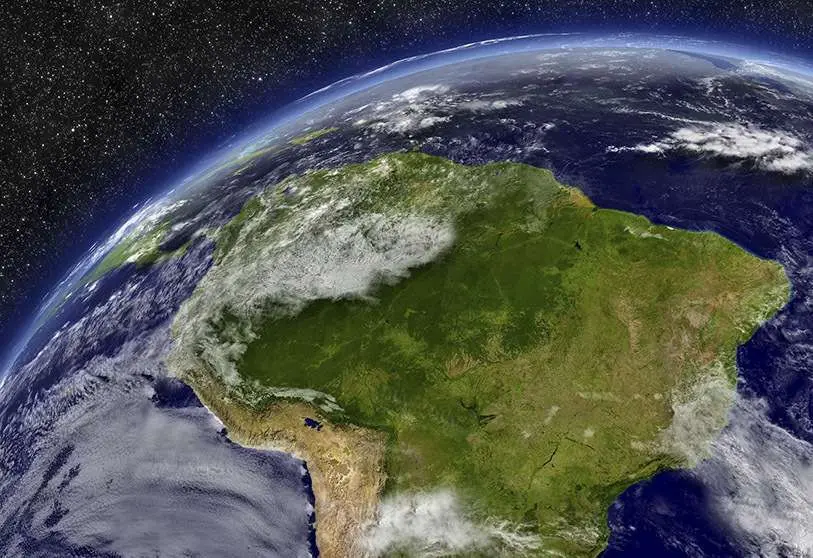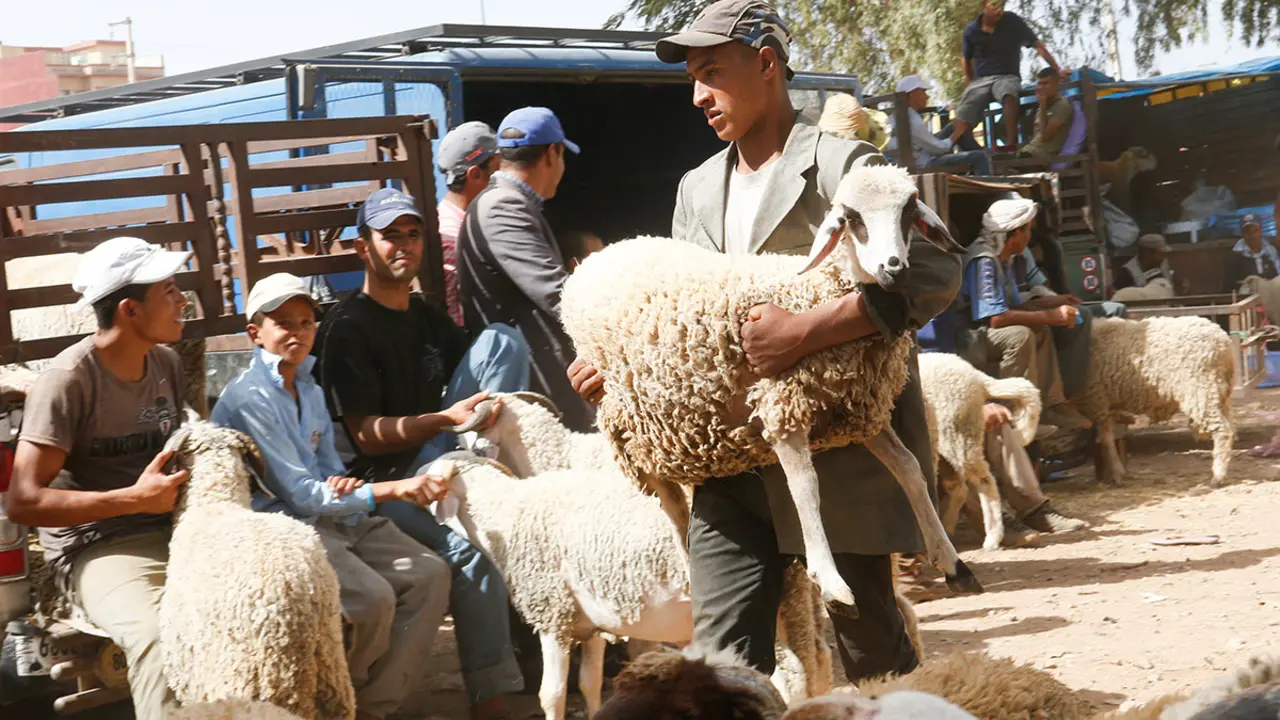Latin American and Caribbean countries accelerating climate action

Latin American and Caribbean countries have undergone a period of modernisation, along with economic and political-social progress. However, the region continues to face a number of challenges in the face of inequality and the economic slowdown resulting from the COVID-19 pandemic.
When it comes to COVID-19, the Latin American region has been among the hardest hit. In terms of death toll, it is among the highest in the world. Economically, the region is facing a greater economic contraction compared to other emerging market regions. According to the International Monetary Fund (IMF), 15 million more Latin Americans will live in extreme poverty as a result of the pandemic, while the region's GDP contracted by 7 percent in 2020.
The road to recovery looks uncertain and even with strong policy action, the threats posed by climate change and biodiversity loss remain. Projected climate scenarios indicate a high level of vulnerability in the region that will be felt through multiple hazards. Rising temperatures, more frequent storms coupled with rising sea levels, irregular cycles, extended droughts and frequent flooding will threaten development gains and are already triggering climate-related migration and exacerbating inequality-related problems.
In the past year, Central America has been hit by a series of intense hurricanes that have led to increased migration from the worst affected areas. Meanwhile, in the small island states of the Caribbean, coastal communities face an increased threat from rising sea levels that, if left unaddressed, will result in the loss of infrastructure, livelihoods and natural resources. Finally, the increasingly degraded Amazon rainforest may become a contributor to global warming and have the potential to be the cradle of future pandemics.
Governments could look at the crisis as opportunities to reform economic, education and health systems; restructure government institutions; prioritise a greener, more nature-aligned recovery; or, conversely, take the 'easy' road and invest in short-term solutions for economic recovery, despite environmental considerations.

To address these challenges, UNDP and its partners across the UN system, including donors such as the Adaptation Fund, the Global Environment Facility and the Green Climate Fund, are stepping forward to help governments reinvent a climate-resilient, low-carbon future for the citizens of Latin America and the Caribbean, providing the opportunity to identify alternative development pathways that prioritize sustainability and long-term thinking.
UNDP support has contributed to improved climate governance in both rural and urban settings, implementing innovative nature-based solutions and shifting to adapted livelihoods. UNDP's joint support has generated impact in the form of improved food and water security, as well as models of local sustainability in the face of climate change.
In Latin America and the Caribbean, UNDP's Climate Pledge supports 25 countries to work together on climate action between government and society to promote equity, address poverty and strengthen social and environmental sustainability.

UNDP's regional portfolio promotes ecosystem-based climate solutions to provide low-cost options for protecting coasts, forests and watersheds, and creating climate-resilient livelihoods for people who depend on the natural environment and its resources for their livelihoods. This approach considers the region's role at the forefront of the green movement, as well as its rich biodiversity.


Honduras
In Honduras, indigenous peoples and community groups are using nature-based solutions to address the urgent problems of climate change, environmental degradation and forest fires. By supporting healthy watersheds and increasing access to water, a project funded by the Adaptation Fund and supported by UNDP is providing the resilience needed in the face of the multiplier risks posed by COVID-19, inequality, violence and migration. The project also provides technical and administrative training to local municipalities.
"We have seen the forest burn like never before. But our communities responded. When we were affected by COVID-19, we continued our efforts to maintain our water resources. We went out to plant and restore our forests. COVID-19 has caused an economic crisis, but despite that, we must maintain unity, love and perseverance to preserve our water sources", Fernando Cruz, Forest Ranger, La Tigra National Park, Honduras.


Costa Rica continues to make headlines as it accelerates its decarbonisation ambitions. The country has long prided itself on its quality drinking water, but climate change and ecosystem degradation are exacerbating water problems.
The Government of Costa Rica, in partnership with the GEF and UNDP, is accelerating action to ensure access to safe drinking water for vulnerable populations through a climate change adaptation project that builds climate resilience and empowers local action with gender equality in communities and aqueducts in some 300 rural communities.
In addition to guaranteeing access to drinking water by improving aqueduct infrastructure, it works on disaster risk management through the generation of geospatial and hydrometeorological information and the development of innovation and technology capacities. It also supports the recovery of vegetation cover in areas of water importance, using plant and tree species that can better adapt to climate change and provide more efficient ecosystem services, with the participation of extensive local networks.





With the Government of Colombia, UNDP is supporting wetland restoration in the climate-vulnerable area of La Mojana (Momposina Depression) through a project funded by the Green Climate Fund. The project is improving hydrological modelling of wetlands to improve decision-making for restoring more than 40,000 hectares through community restoration plans. The improved livelihoods are protecting vulnerable communities from the impacts of COVID-19, climate change and environmental degradation.
"I have learned many things. One of them is how to take care of the agro-ecosystem. This has impacted my life and thanks to this I have rediscovered my love for nature," Yoleiber Viloria, rural entrepreneur.
The Resilient Productive Landscapes and Climate Change project funded by the Adaptation Fund in Guatemala was able to demonstrate the advantages of ecosystem-based approaches and climate-smart agriculture for food security.
The project trained farmers in new techniques and land management practices to not only increase yields and incomes, but also adapt agriculture to better withstand the negative impacts of climate change. The unique initiatives included everything from chocolate micro-enterprises to larger forestry and farming initiatives.



The island nation of Cuba is highly vulnerable to the impacts of climate change. And while the Cuban government has made impressive strides towards sustainable development, coastal erosion, flooding, salt, drought and sea level rise threaten these hard-won economic and social gains.
Ecosystem-based adaptation is a cost-effective way to preserve and restore natural habitats and protect coastal communities. A recently closed project funded by the Adaptation Fund restored 1,400 hectares of mangroves, established 1,500 hectares of red mangroves and restored and enriched 4,300 hectares of forests. The project is now being scaled up with funding from the Green Climate Fund. The UNDP-supported "Mi Costa" project will build climate resilience for more than 440,000 Cubans through nature-based approaches.
"We were putting pressure on this ecosystem, but now we have an environmental education project, we work with all the schools and we are linked to the population. Here you can breathe a healthy world", María Teresa, 54, Mayabeque province.
To emerge stronger from the pandemic, the Government of Grenada is adopting an accelerated approach to technology that supports a climate-resilient agricultural system, with the participation of the public and private sectors, as well as academia and civil society. The GEF-funded Climate Resilient Agriculture project in Grenada provides planting materials to farmers across the country, including fruit trees, spices, ornamentals and food crops. Innovative partnerships including digital transformation will facilitate the advancement of development and resilience building, including a focus on exploring possibilities of blockchain technologies for climate resilient agriculture in the country.
Uruguay is moving towards the formulation of its National Adaptation Plan for Cities and Infrastructure (NAP-Cities), an instrument that seeks to respond to the multiple challenges faced by cities due to the impacts of climate change.
More than 93% of the country's population lives in urban areas, a phenomenon that follows global trends and determines the need for a specific climate change adaptation approach for these areas.
NAP-Cities is a planning instrument aimed at reducing the country's vulnerability to climate change impacts, promoting adaptive capacity and resilience, and facilitating the integration of climate change adaptation into planned development. It is a stepwise process that allows for a country approach that is transparent, participatory, gender-sensitive and considers vulnerable groups, communities and systems.
UNDP is actively working in most countries in the Amazon region on a variety of innovative approaches to promote inclusive and innovative sustainable development models. As part of the UN-REDD Programme and the Forest Carbon Partnership Facility, UNDP's Climate and Forests programme has supported Colombia, Ecuador, Peru and Suriname in their REDD+ readiness process to access performance-based financing. Under the framework of the Governors' Climate and Forests Working Group, UNDP is supporting sub-national approaches to REDD+ through low-emission development strategies and investment plans in 35 tropical forest jurisdictions, including 18 states in Brazil, Colombia, Ecuador and Peru. UNDP also supported Brazil, Costa Rica and Ecuador to access more than US$ 168.5 million in the first REDD+ results-based payment projects through the Green Climate Fund.







